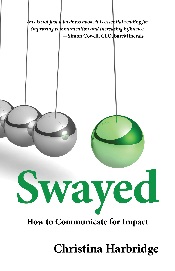Think about an emotional reaction you do not like having. What reaction do you least like to experience? What reactions do you avoid having in the first place, so that you can avoid the feeling that comes with them?
For me, it’s anger. I do not like being angry, so I will often have a ton of other reactions to avoid that one feeling. I might ignore someone, distract myself, try to feel sad instead — any number of things to avoid being angry. The problem with this approach is that my desire not to be angry masks what I am trying to fix or achieve, and prevents me from working toward an outcome I want or need.
How about you? For the next few days, notice the reaction that you avoid, that you do not like. Take note of specific moments, too, rather than generalities. Why should you bother? Because noticing the feelings you avoid is the first step toward propelling yourself out of uncomfortable reactions and on to something much more useful.
An Anger Fable
How people feel about themselves when they are around us dictates how much we influence them. Yet, like all humans, I do not always feel kind. Here is a little story about that. It’s a story about a time I felt angry and used this work to help me accelerate out of anger, in order to find and move on to what I really needed to fix and achieve.
My company, Allegory, hired a Product Manager last year. She is an expert and has forgotten more than I know about product stuff. A Monday morning rolled around and I noticed that my physiology had changed. I was… irritated, a bit miffed, and distracted. I stopped working for a moment and asked myself, “What am I angry about?”
I was angry because, while reviewing my calendar for the day, I realized I had an appointment with our new Product Manager in a couple of hours, without any warning. I silently ranted about how the woman I work with — who scheduled the meeting — “Really doesn’t know how to prioritize.”
Fortunately, I was able to notice my physiological signals, which got me to the first critical step: being able to ask “What am I angry about?” That question enabled me to hear the rant in my head, and then to stop it, and then to question it. Is it true that the woman who manages my calendar “Really doesn’t know how to prioritize”? No. She scheduled the Product Manager to meet with me on Monday because I had said it was “my highest priority.”
I also realized that I had a fear of looking stupid with our new Product Manager. To avoid looking stupid, I felt like I needed time to prepare to meet with her, which I didn’t feel I had time to do.
The moral of the story?
Because I noticed my anger, I was able to use it. How so? Well, if I had not noticed I was angry, I probably would have given our new Product Manager dumb direction that moved us away from what we really want our company to create and do. Flustered and wanting to look smart, I might have said “We need to design a new coaching offering and schedule at least three new workshops.”
Instead, I was able to tell the Product Manager, “I am really good at convincing myself and others verbally that my ideas are the right ones. Do not let me drive with you. Do not take my ideas as direction. Question everything I say. You are the expert and I expect you to tell me I am wrong.”
My anger was a gift, because it showed me where I could have made a huge mistake in influence with our new Product Manager.
Ask Yourself…
When I notice I am angry about something, I can accelerate myself out of it by asking, “What am I angry about?” See if you can find a question like this to ask yourself about the reaction you do not like to have. See if it helps you discover what that emotional activation is trying to tell you. Play with this. Do not try to be perfect at it. Stay curious.
And be careful about throwaway comments you might make while having a reaction. We often make broad, sweeping statements when something triggers us, and we don’t yet know what’s behind it. These statements can mess with our outcomes. Here are some examples of things people say that hurt their outcomes:
- “I don’t care if people quit.” Besides probably not being true, it can result in exactly that outcome. People may very well quit, psychologically speaking, yet stay on the payroll.
- “We suck at execution.” People can use this broad sweeping statement as an excuse for their own performance: “It isn’t my fault… it’s engineering’s fault, because we suck at execution.”
- “Engineering doesn’t know what they are doing.” Folks will go and soothe their hurt feelings with other team members, hurting individual and group performance.
- “I can’t do my best work here.” This is an outcome we don’t want: People can feel so badly about themselves when they are around us, that they resist better performance and success.
Ultimately, the purpose of noticing the reactions you avoid is to become more self-authored, so that your behavior matches your values and moves you closer to the outcomes you want, and away from those that sabotage you or your career.
Being fake is not a strategy for most of us. It takes a lot of energy to pretend. Focusing on making ourselves less easy to hijack, emotionally and physiologically, gives us more leverage than faking it. Noticing our real thoughts and reactions isn’t always pretty. Yet, a leader who can see their own reactions will tend to live more at choice in their behavior
Of course, I still have reactions, including reactions I do not like. I cry. I am petty. I am ridiculous. I do find, however, that when I remember to embrace aversion and stop avoiding avoidance, that I act less erratically, less often, and not at the expense of the outcomes I want. When I notice outcome-reducing behaviors while I am doing them, I can course correct in the moment.
About Christina Harbridge

Christina Harbridge is the founder and MisChief Executive Officer of Allegory, a behavior change company, a mom, and the author of Swayed: How to Communicate for Impact.

